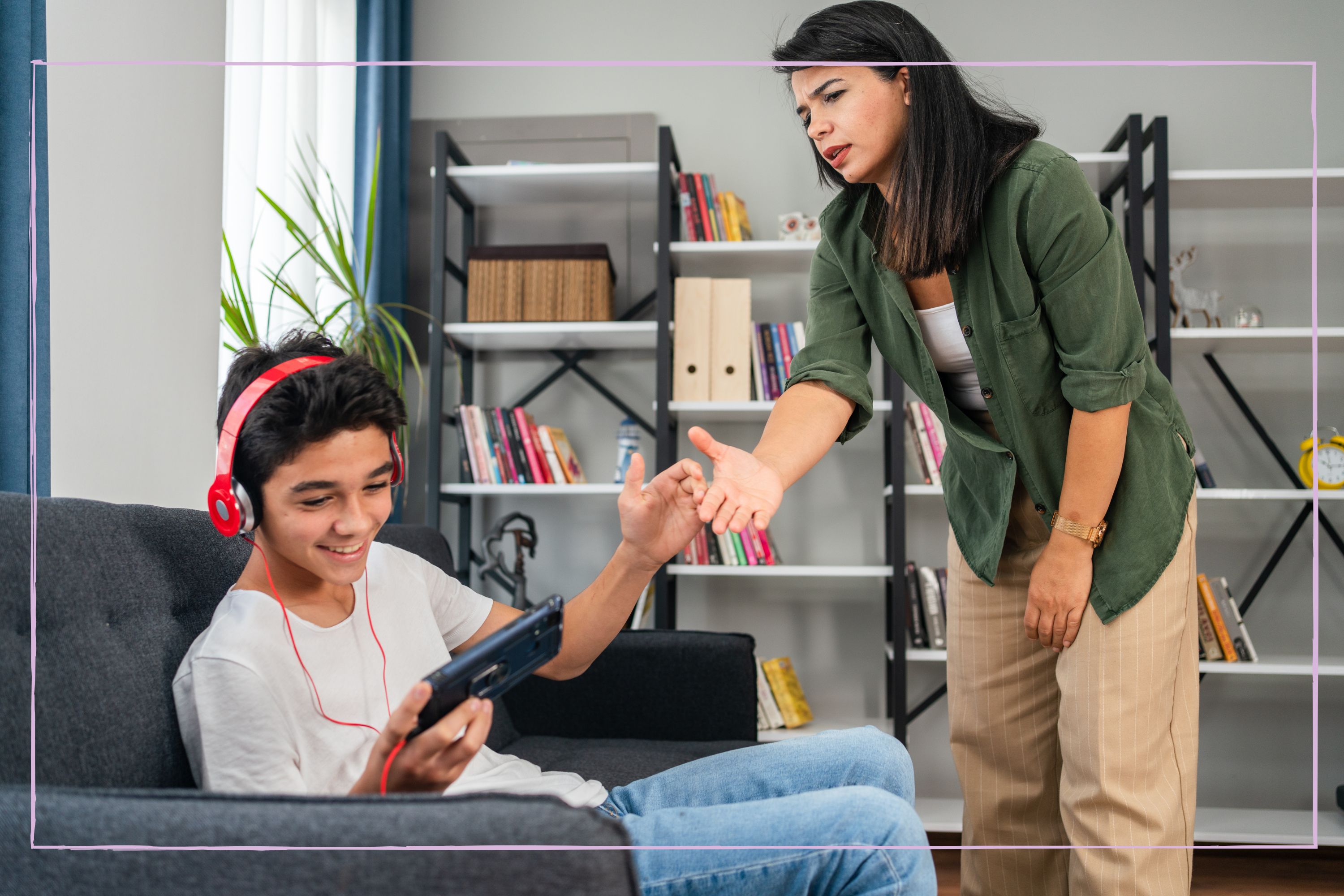
A parenting expert has shared that a teenager’s ‘annoying’ habits can actually be a sign of good parenting, showing that your child is on the right track to becoming an independent adult.
Parenting a teenager can be a daunting task. You're constantly asking 'are you even listening to me?,' as you feel like your teen is tuning you out, you fret about how much sleep they're getting, and there's the added worry of what to do when your teenager starts dating.
It can be hard to know exactly what is going through their heads when you speak with them. Often, teens refuse to communicate and any ‘unsolicited’ advice we give seems to be ignored, though there are ways to make yourself heard. But this changing dynamic, as well as the 'annoying' habits like a messy room and a lack of communication, can actually be a good thing according to one parenting expert.
Tanith Carey, author of the new book What's My Tween Thinking? has revealed there is an upside to a teenager's 'increasingly annoying behaviour.' According to her, it shows that your teen is growing out of being a child who is completely dependent on their parent and into being an independent adult who can make their own decisions on how to navigate the world. You're doing your job as a parent well, helping to ready your child for their future.
Still, it can be hard to let go of certain behaviours and put them down to a child simply growing up. So Tanith has delved into five 'annoying' habits teen tend to develop to show parents how exactly to respond to them.
She told the Daily Mail, "As a younger child, your tween put you on a pedestal as their parent, viewing you as a superhero who knew everything. Now your tween is getting older, they are starting to see you as a real person with human flaws. As they do this, they may seek to redefine your relationship by changing what they call you."
So if your child starts calling you some 'slang' names like 'bro,' or 'bruh,' Tanith says to remember that this is their way of 'gaining distance' as they 'start to imagine a world in which they will have to be independent from you.'
"See this as your tween finding a new way to connect to you in a more adult way," she says. "As long as it's meant in an affectionate, rather than disrespectful way, let it pass."
Similarly, she says to let go of punishing teens over messy rooms. "To your eyes, it may look like they're surrounded by mess. But they simply don't see it that way. For now, their bedroom walls are a gallery for their evolving interests, and pictures will constantly change.
"Experimenting with lots of identities, they will help them work out who they want to be. As long as moldy food or damp clothes aren't creating a health hazard, allow your tween some control of their immediate environment. Kids learn best when they work stuff out for themselves, not when they are told."
A more difficult aspect of teens growing up is when they begin to find you as their parent embarrassing. "Although it's hard to hear that your teen finds you embarrassing, try not to take it personally. See it as a phase of their development toward becoming their own person.
"However, if they continually hurt your feelings by calling you embarrassing, help them learn the impact of their words. Once they develop a stronger sense of their own identity, separate from yours, in their later tween years, they'll go back to loving you just as you are."
In the same vein, it can be heartbreaking when your teen tells you they 'hate you.' It can be hard to know how to respond when your kid says ‘I hate you’ even though we often know it's just because kids don’t have the skills to manage overwhelming feelings without hurtful words and turn to rudeness as a subtle way to express anxiety.
But according to Tanith, "Although it may not sound like it at the time, your child's outburst is a sign they trust you to keep loving them. It shows they feel safe enough to express their anger and are confident you won't reject them for it."
Keep the same thing in mind when your teen starts shutting you out, saying 'Nothing!' when you ask them what happened during their day. "This is an important first step in creating privacy and drawing boundaries," Tanith explains.
"As they now understand other perspectives better, they have worked out that you don't need to know everything they are thinking and feeling – and they can decide how much they want to tell you. Meet them where they are, and look for new ways to communicate, so you stay connected in readiness for the teenage years."
For more parenting tips and tricks, keep up to date with our family news like is your teenager always on social media? New study shows half of teens admit they’re addicted to it (but it’s also giving them these 7 life skills), and this is the real reason why your teenager is sleeping in late, and it’s not because they’re lazy - here's what the experts told us, as well as, is your teenager drawn to taking risks? A child psychologist explains why (plus what you can do to keep them a bit safer).






